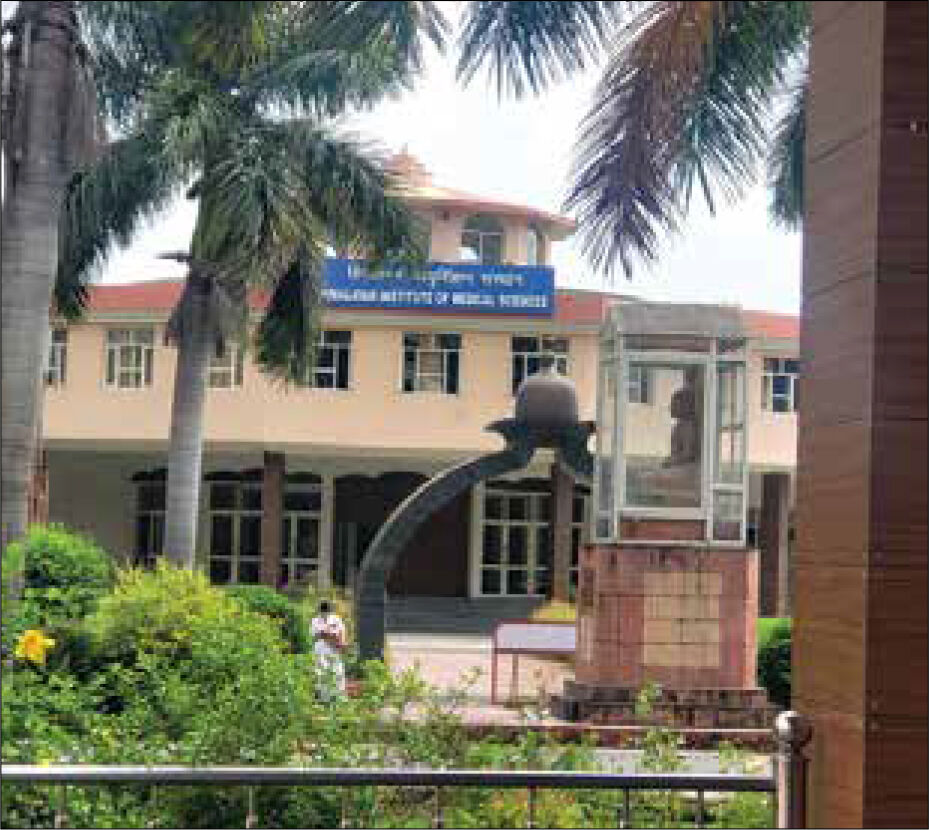Beacon of hope
In a healthcare system plagued with inconsistencies; affordable, efficient and replicable Jolly Grant model stands out as an exception

The fundamental architecture of good governance has a special space for the quality of medical and health infrastructure apart from good education, housing, and excellent law and order machinery. The pandemic exposed the chinks in India's health infrastructure as countless people died due to shortage of oxygen and ventilators. Even the so-called best hospitals in Delhi and other metro cities were found awfully short of life-support systems. Then there were sharks all over the place, who supplied fake Remdesivir to rake in the moolah at the cost of people's health.
The hill state of Uttarakhand witnessed one of the severest death tolls in the country — even if it boasts of an All-India Institute of Medical Sciences (AIIMS) at Rishikesh. Owing to the lack of focus on the management of out-of-Delhi AIIMS, health services are far from satisfactory there. For instance, the recruitment in all group-B and -C posts through a common All-India entry examination has created more problems than sorting out the manpower engagement. The Ministry of Health should have identified a certain category of lower posts for which entrance examination could have been conducted on the state basis. In Rishikesh, people who have served for more than 5-7 years — helping establish the institutions — have been sacked and the medical services are affected.
Though private hospital infrastructures have proliferated all over India, they are criticised for their avarice, and for fleecing people with a lot of unnecessary procedures. Owing to negligible medical surveillance, these cases mostly go unnoticed. The rich and powerful are happy to do business with these private hospitals as they can afford any amount on their health, leaving the poor gasping for fresh air.
However, this writer has come across a hospital in Uttarakhand, the functioning of which he has reviewed after assessing that the implementation of Covid protocol by the state health department was being breached. This writer became covid positive on August 16, and only on August 18, one doctor from Doon Medical College telephoned who was requested to follow the protocols — following which there was no contact and support. When the disease became serious, I had no alternative than to choose a private hospital that has the reputation of providing affordable healthcare to the people of this hilly state. I got admitted to Sri Ram Himalayan Institute of Medical Science Jolly Grant which works on a pattern similar to AIIMS. Set up by Swami Ram in 1995 with the aim of providing ethically sound medical services, the institution admits 150 MBBS and 120 MD/MS students annually, with a 1,200-bed Himalayan Hospital equipped with 950 hostel rooms and excellent faculty accommodation. It offers super specialty programmes in Surgical Oncology, Cardiology, Neurosurgery, Neurology, PhD programmes, fellowship programmes and paramedical programmes.
Spread over 200 acres of beautiful green landscape in the foothills of Himalaya, the institution treats its patients in a caring manner at affordable prices. This place is an "oasis in desert" and anyone can visit here to see how silently its 3,500-member strong faculty is treating more than 5.5 lakh out patients and 60,000 in-house patients, annually. The library here is open on all working days with access to the latest 19,000 books, 191 journals and 1,671 e-journals. The institution has state-of-the-art auditorium, lecture theatres, labs and demonstration rooms. National Medical Commission has recognised this institution to train medical faculties of 19 medical colleges of Uttarakhand, Uttar Pradesh and Himachal Pradesh. It has international research collaborations with nine Institutions including Rostock University of Germany, IBC Denmark, Wisconsin University of the USA and other AIIMS. Every year, more than 150 research papers are published in various journals of repute.
The monthly bill amounting to Rs 17 crore is based on self-generated revenue and without any recourse to loans/grants etc. It reflects the objective of Swami Ram in providing affordable and ethical medical services to the underprivileged sections of society by creating a self-sustained international standard healthcare. The hospital has been adjudged as first in the country for treating the highest number of patients under the AYUSHMAN scheme. Its model is worth emulating. Today, Jolly Grant is the number one medical college in this part of the country and matches the quality of any good AIIMS. Governments must support and promote such ethics-based institutions as an incentive for ensuring better healthcare for the disadvantaged lot.
The writer is Chairman of Centre for Resource Management & Environment. Views expressed are personal



